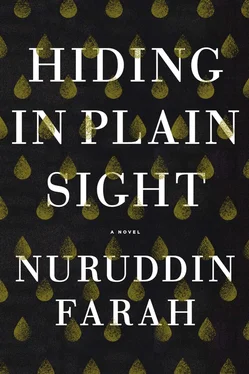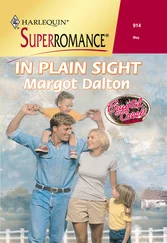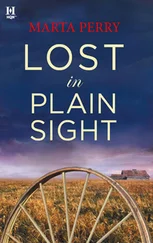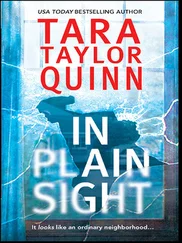“I know what is what,” he says.
“You do, eh?” says Bella.
“And have eaten from the Tree of Knowledge too.”
“I needed to speak of what I saw,” Dahaba says.
“I can see that,” Bella tells her.
“I felt lost.”
“I understand.”
A sudden wildness enters the look in Dahaba’s eyes. And she bursts out, “How dare they do it here, in my father’s house? How dare they, so soon after his passing?”
“What did Salif say when you told him?” asks Bella.
“He didn’t want me to disturb his sleep.”
“I bet that upset you too,” comments Bella. She catches a ghost of a smile around Salif’s mouth. “Up in Lapland, little Laps do it”—the line comes to her, unbidden, and she finds herself grinning too.
Bella dishes out the food and they all sit to eat.
Years ago, she remembers, Salif used to delight in hiding Dahaba’s favorite toys and then telling her that burglars had taken them away. After she had cried her heart out, Salif would give them back, claiming to have saved them from the thieves. One April Fool’s Day when Valerie was out for the afternoon, Salif gave Dahaba a fright. Pretending to be weeping, he told her that he had just received the sad news that their mother had died in a car accident. When Valerie returned to a hysterical Dahaba, Salif laughed it all off, saying, “Don’t you know it was just a prank?” Nowadays, whenever he tells her a fib, Dahaba retorts, “You can’t fool me; it’s not the first of April.”
Bella says, “But what is it that happened today?”
Dahaba says, “Because he knew about it.”
“Darling, you are not making sense,” Bella says. “What did Salif know? Tell me from the beginning and do it slowly so I can follow you.”
Bella reasons that Dahaba is a tabula rasa girl. Assuming that what she knows is known to others, she always begins stories somewhere in the middle.
Salif steps in. “Dahaba came to my room, upset at what she had seen. She woke me up. I told her to let me sleep. She wept. Unable to go back to sleep, I told her about a YouTube video our cousin Dhimbil had come upon and forwarded to me. It shows Mum and Padmini in some compromising positions. So there we were: Dahaba upset with Mum and Padmini; and Dahaba furious with me because not only wouldn’t I wake up and hear her out but I also hadn’t shared what I knew about Mum and Padmini. That is the long and short of it.”
“Yes, I was angry that he hadn’t shown me the YouTube,” says Dahaba.
“I meant to spare her the agony of knowing,” says Salif.
“I’m not a baby,” Dahaba protests.
Salif says, “With some folks, you can never win.”
“Listen to him gloating,” says Dahaba, getting angrier.
For a while, they eat their meal in silence, even though Bella fancies she can hear the thoughts turning in their heads. It doesn’t rain in this household, she thinks, it pours.
Bella says to Salif, “You still haven’t told me how you got into a row with your mum? What was that about?”
“Mum came into the row later,” Salif says.
“How do you mean, later?”
He replies, “Dahaba told Mum how upset she was over seeing them doing it. Mum tried to explain things to her calmly. Everything was cool until Padmini had the gall to refer to Dahaba as an evil little ghoul roaming the house in the night in hopes of finding fault with how the world works.”
“Then what?”
“Then I lost my cool.”
“Did Padmini use those words?” Bella asks.
“No,” Dahaba says.
“Be a good boy and tell it in her words.”
Salif speaks with care and precision. “She described Dahaba as an evil owl wandering in the darkness on the pretext of locating what evil there is in the world we inhabit.” He seems pleased with himself, his attitude that of someone who has passed an endurance test. Dahaba nods her head in support of him.
“Imagine thinking I am evil,” she says.
“You’re not evil and you know it,” Bella says.
“An evil owl,” Dahaba says.
Bella assures Dahaba, “You are a wonderful girl, and you do not possess even an iota of wickedness.”
Dahaba shrugs. “Why did they blame me?”
“Maybe they were shocked themselves,” Bella says. “You mustn’t take any of this to heart. These sorts of misunderstandings happen in families, but you have to let them go.”
“It’s all Mum’s fault,” Salif says.
“How so?” asks Bella.
“She didn’t have to stay with Dad,” he says. “And it would even have been okay if she left him for a woman. But couldn’t she have partnered with a woman good enough for us to accept into our family? She chose a basement bargain! And you know what they say, you get what you pay for.”
Bella knows she can’t afford to comment.
Dahaba says, “Padmini should’ve stayed on the couch where we left her. You took the trouble to make it up for her.”
“Or the two of them should’ve shown patience until they were in their own private hotel room,” Salif says. “Even cigarette packets carry warning signs.”
Is he trying to be hilarious? Bella thinks, taking a mouthful. But she keeps mum. She must let them speak their minds.
Dahaba now says, “After they went to jail for it, you would think that they would be more careful the next time.”
“I’ve nothing against Mum going gay,” Salif says.
Dahaba says, “It just gave me a shock, seeing them and all.”
Bella looks at one and then the other, and speaks with extra caution. “In much of Africa, being gay is considered an abomination. I hope you are more advanced in your own views and are more tolerant of other people’s choices. What people do and who they do it with is their own private affair.”
“I agree with you on that score,” Salif says. “But there is a but .”
“Let’s hear it,” says Bella.
“You must tell the truth, no matter the fallout,” he says. “Why lie and say that Padmini is like a sister to her when it is clear there is something else going on. You see what I am saying?”
Bella does. Indeed, she is astonished to find that he is thinking just as she thought.
“What about you, Dahaba, darling?” says Bella.
“I am not against her being gay,” says Dahaba slowly.
“But you were shocked,” Salif reminds her.
“Because I didn’t expect to come upon them,” she says. “And because Padmini called me evil.”
“And what do you think now that a little time has passed?” Bella asks.
But Dahaba is unwilling to say.
“What’s your position, Auntie?” says Salif.
Dahaba says, “Auntie lives in Europe, where they accept such behavior, where they tolerate it.”
“What are you saying?” Salif challenges Dahaba.
“In Europe, being gay is no big deal.”
“Why don’t you let Auntie answer?” he says.
Bella says, “People everywhere should be in a position to make their God-given choice and to be with those they choose to be with. We Africans lag behind the rest of the world, and we waste valuable energy putting our noses in people’s private lives. We have no business there.”
“Did living in Europe change your views,” Salif asks, “or are those the views you held before you left Africa?”
“I’ve always appreciated differences,” Bella says. “My mother had a lot to do with that. She appreciated the things that set people apart. She was never one for monotony.”
“Why are most of us so wrong about this?” Dahaba asks.
“We are ill informed about the world, ill educated, intolerant of the views of others when they do not agree with ours,” Bella says. “We are undemocratic, just like our governments. But sex is a personal matter that our societies and governments have no business with.”
Читать дальше












